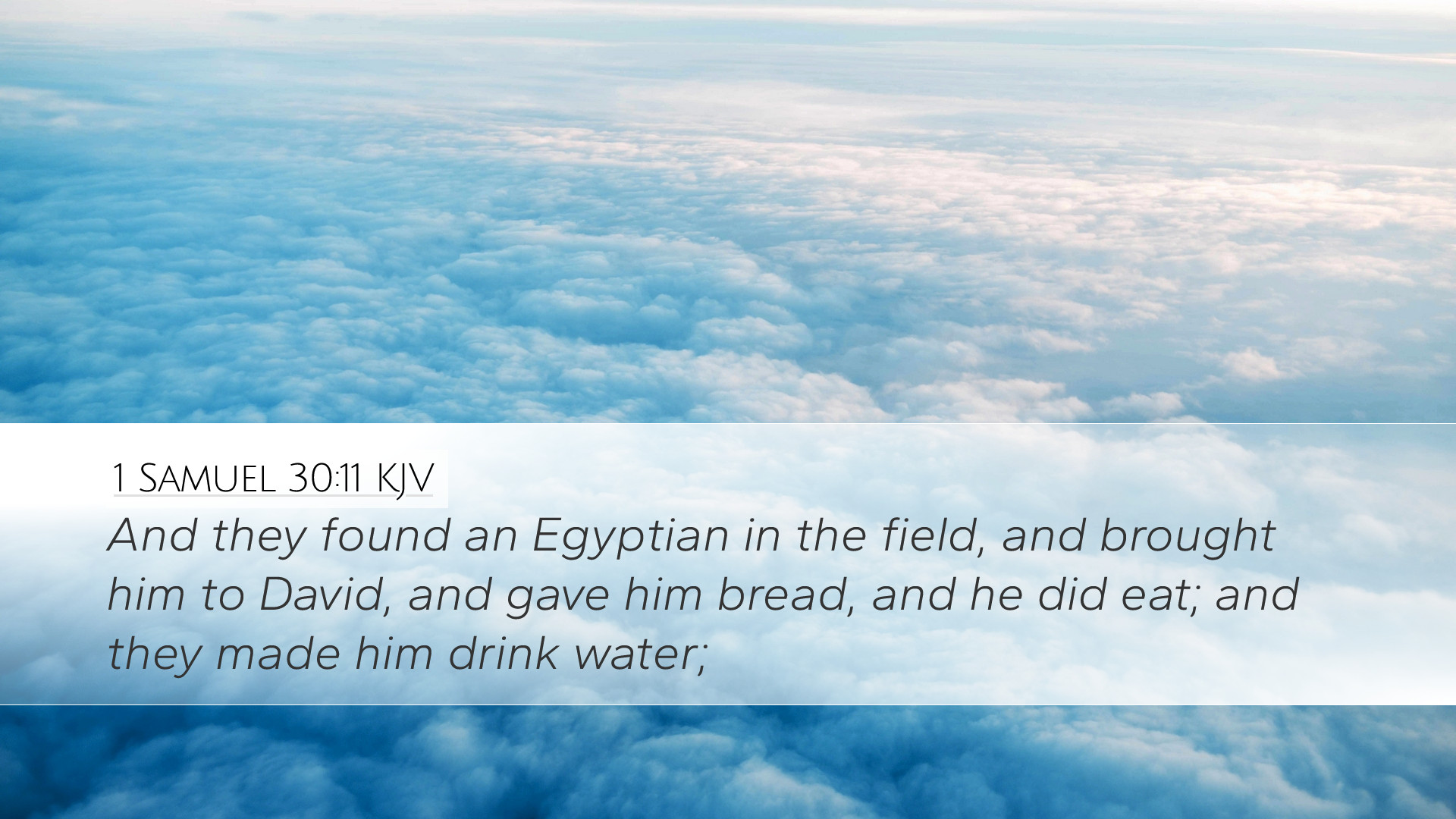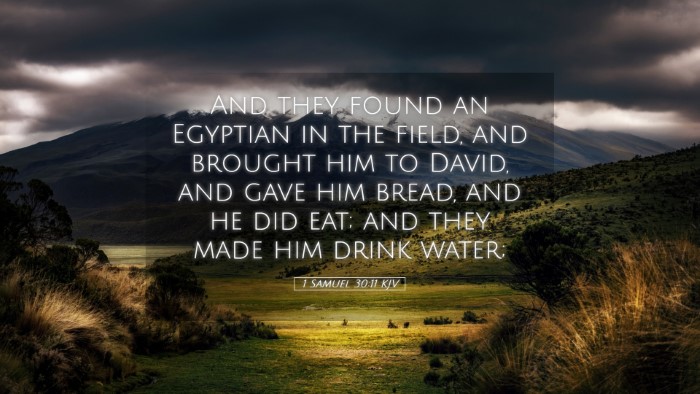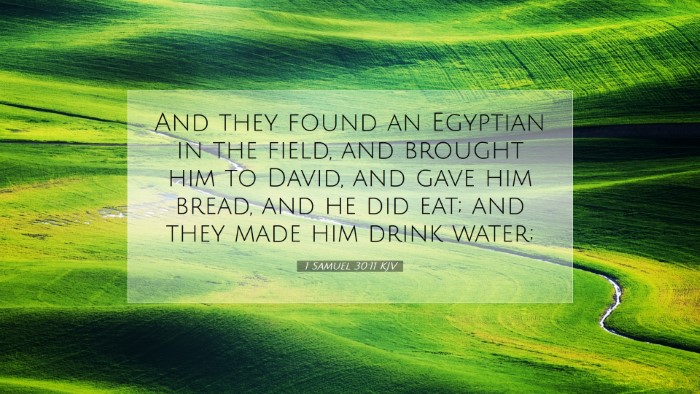Commentary on 1 Samuel 30:11
Verse: "And they found an Egyptian in the field, and brought him to David: and gave him bread, and he did eat; and they made him drink water."
Introduction
This verse captures a critical moment in the narrative of David's recovery of the Amalekite raid against Ziklag. It reflects themes of providence, mercy, and the complexity of leadership in times of distress. The encounter with the Egyptian servant serves as a turning point that enriches the story both culturally and theologically.
Insights from Public Domain Commentaries
1. Contextual Background
The historical background of this passage is vital. David, fleeing from Saul, has established a stronghold in Ziklag. During his absence, Amalekites raid the city, taking captives, including David’s wives and children. David’s plight highlights the dire consequences of the conflict between the Israelites and their enemies.
2. The Discovery of the Egyptian
Matthew Henry emphasizes that the discovery of the Egyptian serves both a physical and spiritual purpose. The Egyptian, left behind by the Amalekites, symbolizes the mercy that God extends even toward those who are perceived as enemies. David's encounter with him speaks to the importance of compassion in moments of crisis.
Albert Barnes notes that the finding of the Egyptian is pivotal because it illustrates God’s providence in David’s journey. In times of peril, God often provides unexpected help. The exhausted state of the Egyptian makes him a poignant reminder of the brokenness that affects all, whether enemy or friend.
3. The Act of Kindness
The response of David and his men in extending kindness to the Egyptian highlights a significant moral lesson. The act of providing food and water illustrates the biblical principle of loving one’s enemy. Adam Clarke points out that this act of mercy not only serves the immediate purpose of gaining information but also exemplifies the righteous character of David and his leadership.
Lessons from Kindness
- Compassion in Leadership: Leaders are called to exercise mercy even when dealing with adversaries.
- Human Dignity: Every individual, regardless of their status, possesses dignity worthy of care and concern.
- Strategic Alliances: Acts of kindness can lead to strategic benefits; in this case, information about the Amalekites' camp.
4. Theological Reflections
The encounter allows for rich theological inquiry. It raises questions about God’s sovereignty and human agency. Matthew Henry suggests that despite the chaos and despair of David’s situation, God's hand was at work, orchestrating events for David's ultimate victory. This underscores the belief that God uses even adverse circumstances for the good of His people.
Providence and Mercy
Albert Barnes translates this into a broader understanding of God's providence, stating that even in desolate times, God is active, leading His servants to unexpected means of rescue and support. The shift from despair to hope is initiated not by force but by kindness and care.
Moreover, Adam Clarke highlights the representation of the Egyptian as a type of the sinful nature within the world and the call to the faithful to extend grace and mercy. This reflects the Gospel's emphasis on redemption and restoration.
5. Conclusion
1 Samuel 30:11, at first glance, may seem like a simple narrative piece, but it holds profound lessons for leaders, scholars, and believers alike. The encounter with the Egyptian serves as a reminder of God's providential care, the necessity of mercy, and the significance of compassion in the tapestry of our lives. It challenges us to consider how we respond to those who may be seen as adversaries and reinforces the biblical call to love and serve all, reflecting the character of Christ in our interactions.
Reflection Questions
- How can we demonstrate kindness to those we consider enemies or outsiders in our community?
- In what ways can we recognize and act upon God’s providence in our lives?
- What does this passage teach us about the nature of true leadership?


